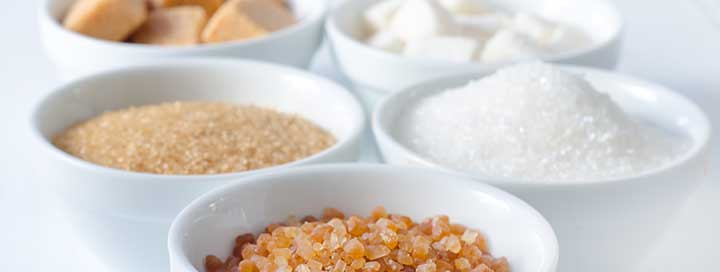Diabetics and people who live a sugar free lifestyle or are trying to consume less sugar often look for sugar alternatives. The problem is there are quite a few out there. And many people don’t know the differences between them. Often people view sugar alternatives as just that, an alternative to sugar. They don’t realize that these alternatives contain different ingredients and some are better for your health than others.
We, naturally, support xylitol sugar alternatives. Examples of xylitol sugar substitute brands include: XyloSweet, Lite&Sweet, Xyla, and Global Sweet to name a few.
But it’s important to remember that not all sugar alternatives are the same.
Many people might not know about xylitol. When people think about sweeteners they tend to think about stevia, aspartame, or maybe agave. However, more often than not, they’ll probably think about sugar substitute brands rather than the actual sweetener used. For instance, Equal, Splenda, or Sweet N’ Low rather than aspartame, sucralose, or saccharin.
You might think it’s no big deal which sugar alternative you chose with your morning coffee; thinking it’s such a small amount it won’t matter. But when you have morning coffee every morning it can add up.
That’s why we believe so strongly in xylitol. When taken in the right amounts (5 grams a day), xylitol actually has health and dental benefits. And when 5 grams per day isn’t consumed, you may not be reaping all the benefits, but you also don’t need to worry about any negative effects. When you opt for a xylitol sweetener, you can use it anywhere you would normally use sugar. This means your morning coffee or tea, your baking, and even general cooking. Since xylitol does not melt and “hard crack” you shouldn’t use it on creme brûlée topping, but that’s pretty much your only limitation with it.
When it comes to sugar alternatives, we recommend talking to your doctor about xylitol and what can be the best option for you. And if they are not familiar with xylitol read more at this site and inform them.
Related Articles
Xylitol Research
Dental Benefits There is no better way to begin addressing this than to look at Kauko Makinen's work. He has been looking at xylitol and tooth decay from the beginning with the Turku sugar studies. Here is what he wrote this week (September 4,...
Understanding the Importance of Xylitol Dental Health
Can xylitol play a role in your dental care program? People around the world are now using this all-natural sweetener. While it was discovered in the late 19th century, xylitol didn’t really begin making its way into the public consciousness...
Xylitol Animal Studies
Publication: IPCS Inchem Read original study here. XYLITOL Explanation Toxicological monographs were issued in 1977 and 1978 (see Annex I, Refs. 44 and 49). Since the previous evaluation, additional data have become available and are summarized...
Sugars and Sweeteners
The Canadian Diabetes Association compiled information on which sweeteners increase blood glucose levels, and which do not. View the tables here. Related...
Reasons to Use Xylitol Chewing Gum
The right xylitol chewing gum can help you boost your overall oral health. Beginning in Finland in the 1970s, researchers began studying the diverse benefits of xylitol and were, in fact, quite surprised by what xylitol had to offer. Xylitol...
The Effects of Equal Caloric Amounts of Xylitol, Sucrose, and Starch
The effects of equal caloric amounts of xylitol, sucrose and starch on insulin requirements and blood glucose levels in insulin-dependent diabetics. By Hassinger, Suer, Cordes, Krause, Beyer, and Baessler. Diabetologia, 1981 July, pages 37-40...





